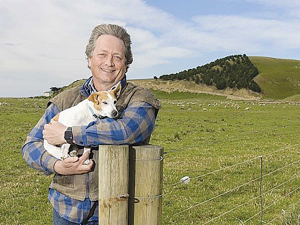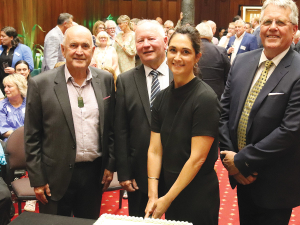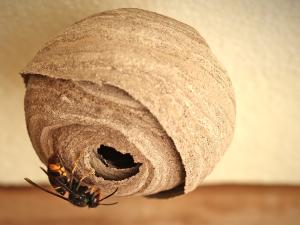Gone were the freezing winters and reliable summer rains – replaced with year-round growth, frequent summer droughts and relentless wind
The Crofoots quickly discovered that looking after their farm’s soil required a shift from traditional thinking and practice.
Two attempts at sowing pasture in a conventionally cultivated paddock—and two spring gales that blew about a third of the seed straight out to sea each time—convinced them that there had to be a better way to establish pasture in this climate.
And that’s been a theme throughout their 20+ years on Castlepoint Station, a 3,700-hectare sheep and beef operation about 65km due east of Masterton.
Weather and topography are constant challenges.
In winter, pugging and hillside slippage are problems. In summer, it’s dryness. But it’s the wind that Anders Crofoot describes as the most striking feature of the property. In his first year at Castlepoint, a storm with sustained winds of 160 km/h struck. He’d never experienced anything like it. Now he barely blinks unless the wind rises above 120 km/h!
The station has three alluvial valleys, separated by hills that in some places run north-south and in others east-west. That variable aspect, coupled with the relentless north-westerly winds and periods of dry, create pockets where maintaining soil productivity is extremely difficult.
In these conditions, some of the traditional practices weren’t working well.
The Crofoots now sow by direct drilling to reduce soil disturbance and wind erosion.
They are also experimenting with deeper-rooting forages – such as lucerne and plantain. These plants extract moisture from the soil more effectively without compromising feed quality and their roots also help to hold the soil together during periods of fallow.
Dung beetles are now also part of the mix. In theory, these can help to improve soil productivity by pulling nutrient-rich manure deeper into the soil and opening up channels through which more moisture can flow.
About 15,000 poplar and willow poles have been planted to stabilise hillsides prone to slipping in winter and provide shade for livestock in summer.
There has also been some tweaking of animal numbers over the years to optimise the stocking rate/productivity mix, as well as a focus on high-value outputs like Wagyu beef to shore up the business against market vagaries.
Crofoot says that while they’ve made something of a shift from the conventional, everything they’re doing to look after the soil and fine tune the system is simply “good farming practice”.
Their actions have seen lambing percentages and weaning weights increase, while the soil is visibly richer in organic matter and better able to cope with nature’s harshest assaults.
Meanwhile, those assaults will inevitably keep coming.
• Source AgMatters website, which is funded by the Ministry for Primary Industries and managed by the New Zealand Agricultural Greenhouse Gas Research Centre (NZAGRC).









